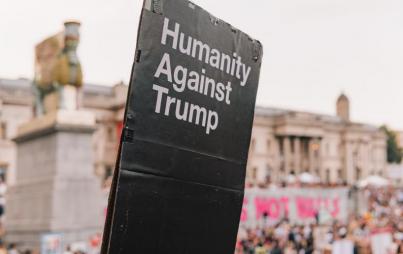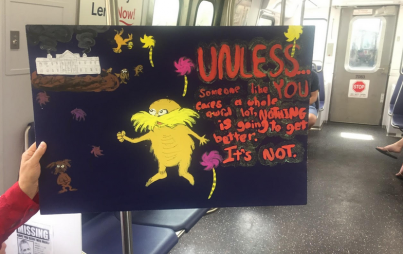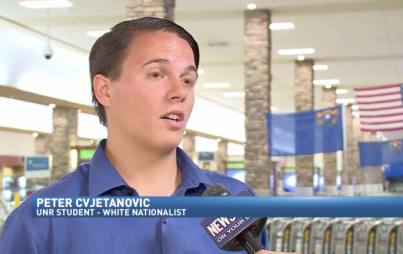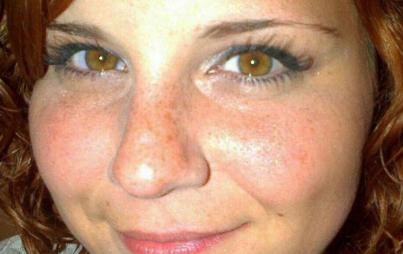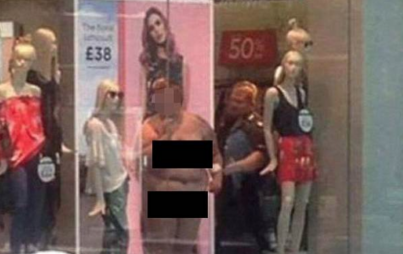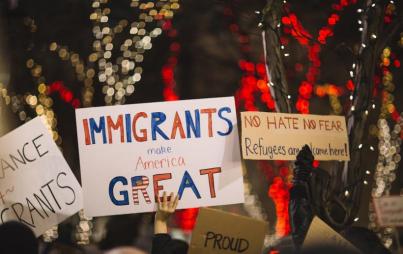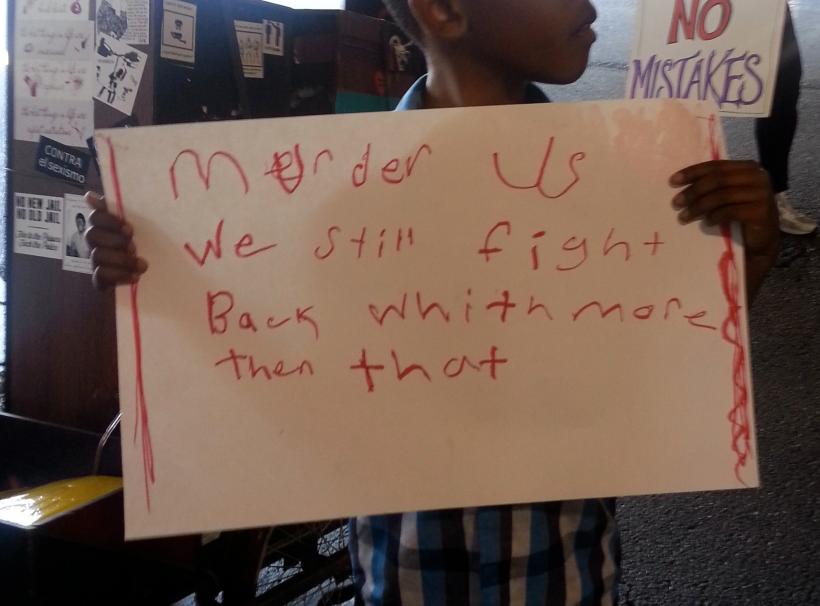
Protests traditionally present us with a unique opportunity to unite with people who feel mutually passionate about injustice. Amid the chants, posters, drumming, occasional tears and inevitable police patrol, we're all hoping for the same basic thing: change. For the 200-plus folks who rallied in Oakland yesterday, the desired change revolved around the increasingly complex issues of racism and police brutality in the harrowing aftermath of the Michael Brown shooting in Ferguson, Missouri.

We began in Jack London Square. The first man we spoke to exuded the cool somber sadness that only comes in the wake of true devastation. He told us that he had just returned from Ferguson, and had chosen to continue his support in Oakland. In his hands was a poster depicting the lives of young black men lost at the hands of police brutality.
The eyes of Trayvon Martin stared back at us as we asked the man why this issue was important to him. With a heavy hand, he pointed to his nephew (right of Martin). As it turned out, this man was the uncle of Oscar Grant, the young man that was shot and killed by BART officers in the Fruitvale station.

While it’s no secret that black men are subjected to police profiling and violence at a disproportionate rate, other protestors were keen to note that brutality exists in a wide variety of societal facets; its presence doesn't exist solely in this sphere.
“I can’t get behind these ‘fuck the police’ chants,” a protestor named Brandee explained to us as we walked to Broadway and 7th street. “Not all of them are bad.”
Dinyal New (Brandee’s roommate) lost her 13-year-old son, Lee Weathersby III, around the corner from their home in Oakland on New Year’s Eve this year. Lee was shot 28 times.
The family and the police believe that the actual target was Lee’s older, 19-year-old brother, Lamar. Brandee and Dinyal's family believe that the police should have kept Lamar in protective custody. Instead, Lamar and his best friend were killed three days after Lee’s funeral when a gunman stood on the hood of Lamar’s car and shot them through the windshield.
(Their family has started a non-profit called “L’s Up, Guns Down,” and they stand in places around the city where young black men have been gunned down, not exclusively by the police.)

We marched north to the words, “From Oakland to Palestine, being black is not a crime.” When we got to the underpass at Broadway and 5th Street, the police—in riot gear—formed a blockade underneath the bridge to “keep us away from the police station.”
Rachel—another fellow protester—was bothered by the police blockade. “It’s been really intense. They feel really determined to keep us from a basic right. You always read about it in the news, but it’s a lot different to see it in person.”

After some confusion (and a lot of chanting), we eventually joined a larger protest at Broadway and 7th Street.

A few of the citizens—not-so-surprisingly—had turned a march against brutality and racism into a “citizens vs. cops” protest, and it was devastating to watch. We witnessed a black woman provoke a black police officer to the point of tears. While we couldn’t hear everything she was saying to him, it was clear that she had struck a nerve with the officer. The irony of this situation is not lost on us; this officer had graduated from school, finished a police academy, and has never had a felony charge. (A prerequisite for entering the academy.)
He was given the opportunity to make the choices that come with the freedom that we were there fighting for, and he was being verbally abused for those choices; he'd become the whipping boy for everyone's sorrow, the hateful symbol for every racist cop in this country.
Perhaps it was these tears that best illustrated the conflicted reality of our nation.
While police officer Darren Wilson’s actions were wrong, plain and simple, this form of police brutality is just the tip of the iceberg and represents one—if one particularly disconcerting—sliver of the hateful paradigm society enters in the wake of wrongful deaths. We have miles and miles to go before we wash our hands of hate. But the overarching heart and hope present in the Oakland rally filled us with creeping confidence that we will (eventually) achieve transformation.
“No Justice, No Peace,” read the sign. But the optimist in us heard “Know Justice, Know Peace.”

